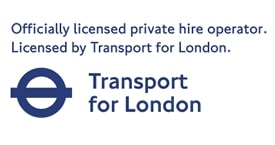Failure to expand London airports hurting economy, warns aviation body
The UK's leading role in aviation is being badly eroded by a government that will not take the tough political decisions needed to maintain capacity, a top global industry figure has warned.
And London's future as a pre-eminent financial centre will be put at risk by "withering connections", according to the director general of the International Air Transport Association, Tony Tyler.
Speaking at the annual meeting of Iata in Beijing, he said the British economy was suffering the consequences of refusing to invest in infrastructure. Tyler said: "What is happening in the UK is very sad, because the UK has traditionally played a leading role in world aviation, over many decades, but it is going to see that leading role badly eroded unless something is done about hub capacity in the south-east and that really means Heathrow.
Aviation could be a "powerful workhorse" but the government "didn't get it", he said. "Why is London such a leading financial centre? There are several reasons, but one of them is that it is so well connected with the rest of the world. As those connections start to wither away because of the pressure on capacity at the hub we will see that getting damaged and of course continental competitors are there to take up the slack."
A long-awaited air policy review and call for evidence on hub capacity is expected in the coming months. While the coalition is explicitly and formally opposed to any new runways being built in the south-east, large numbers of Tory MPs have called for the party to reconsider on Heathrow expansion.
Tyler said: "It is really up to the UK to take some tough political decisions which will benefit the UK in the long run. The problem is of course that there may be a short term political price to pay for what is undoubtedly necessary for the UK to be able to develop in the way it has in the past."
In an earlier speech to 750 delegates from 240 airlines worldwide, Tyler singled out the UK for criticism over air passenger duty, which he described as "the biggest aviation tax in the world". He said the fact that it had been cut back in Northern Ireland showed the government recognised its negative economic effects.
UK passenger numbers have declined slightly over the past four years, according to Iata, at a period when Germany, France, and the Netherlands – home to the three major rival hub airports to Heathrow – saw growth of between 2-4%.
Heathrow is operating at 99% capacity and its operator, BAA, has stepped up lobbying for a third runway, cancelled by the incoming government in 2010.
Tyler's views on Heathrow expansion were echoed by industry executives gathered for the conference in China. John Slosar, chief executive of Cathay Pacific, said: "If Heathrow wants to stay the vibrant and important world hub it has been in the past, you will need to put capacity there. It could mean a new airport, but most likely it is a third runway. Without it, it will miss the growth in travel over the next decade."
Christoph Franz, chief executive of Lufthansa, whose Frankfurt home is one of the chief rival hubs to Heathrow, said: "It's a big mistake. Aviation is not just an industry that provides jobs, it is a catalyst. You're in recession, you need growth, and you're keeping it away – it doesn't make any sense."
Bruce Ashby, chief executive of the oneworld alliance, which includes British Airways, American Airlines, Cathay Pacific and Qantas, said it was "parochial" for the government to limit expansion when the demand was there. "Wherever there is an artificial constraint on capacity, airlines will find ways to divert traffic to places where they can. It is happening all over the world today. It is parochial for a government to think it can control traffic flows as opposed to participating."
While Air China has recently opened direct routes from Gatwick, adding to their Heathrow operations, another Asian airline reiterated its preference for Heathrow.
The commercial director of Malaysia Airlines, Hugh Dunleavy, said it would deploy the first A380 at the west London hub, and expressed little sympathy for the local concerns over noise that have made expansion politically toxic. He said: "It is better to invest in Heathrow. People may not like another runway, but when they bought their house, didn't they notice there was an airport there?"
Guardian




